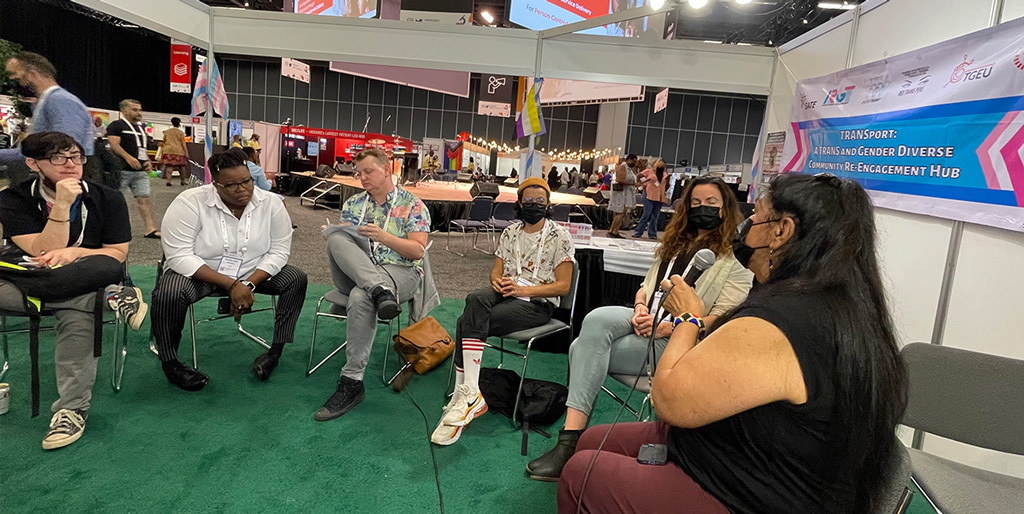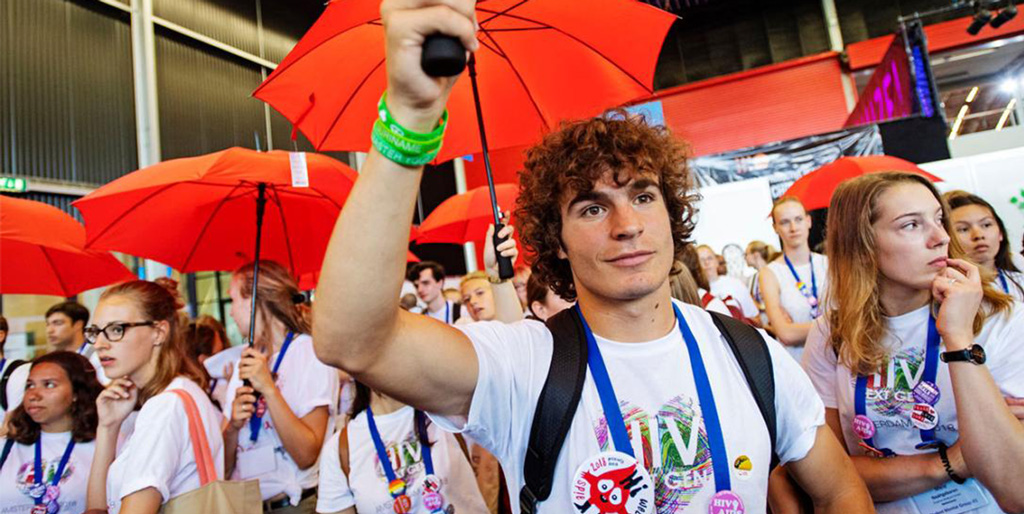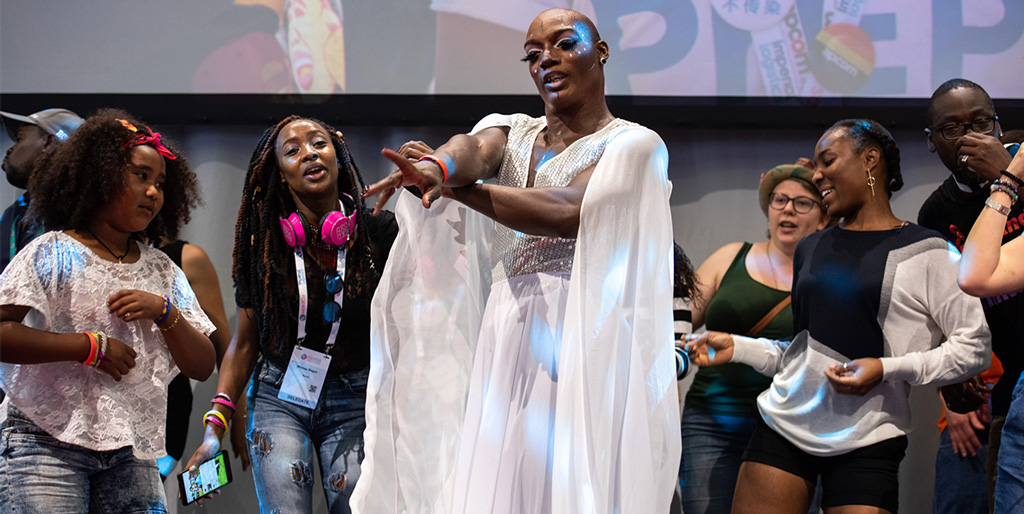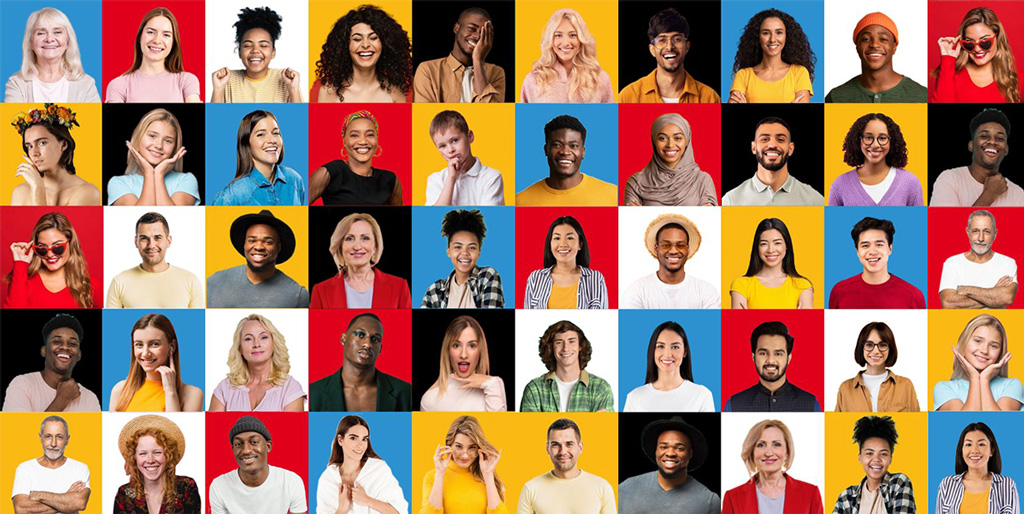“At the end of December, we realized that the blockade of the Lachin corridor could last longer. Then people started writing to us that medicine was running out.“
Ahead of of the International AIDS Conference – AIDS 2024, as part of the regional #PutPeopleFirst campaign, VirusOFF meets with leading experts from the Eastern Europe and Central Asia (EECA) region to discuss key aspects where health and human rights come to the fore. These issues not only have a significant impact on the lives of people living with HIV, but also determine the effectiveness of public health policies and programs in the region.
Walls are not the answer. #PutPeopleFirst!
You can learn more about the EECA region and AIDS 2024 at aids2024.virusoff.info and our social networks.
Chairperson of the public organization “Real World. Real People” Zhenya Mailyan is one of the participants of the International AIDS Conference AIDS 2024. In a few days, she and her colleagues will represent Armenia at one of the largest events in the field of HIV/AIDS in Eastern Europe and Central Asia. Usually at conferences, it is customary to talk about the achievements of countries. We decided to talk to Zhenya about a tragedy that few people want to brag about on stage in front of a serious audience.
In December 2022, the road connecting Nagorno-Karabakh (hereinafter Artsakh) with Armenia was closed to all civilian and commercial vehicles after it was blocked by dozens of Azerbaijani protesters. According to international media reports, approximately 120,000 people remained cut off from the world, without food, medicine, or access to medical care. In September 2023, the blockade ended with Azerbaijan’s “anti-terrorist operation,” which many experts called a “cleansing of ethical Armenians.”
Zhenya Mailyan spoke to VirusOFF about how the blockade has affected people living with HIV and those who have helped them all this time
Zhenya, the blockade of the Lachin Corridor lasted almost 10 long months, from December 12, 2022 to September 24, 2023. What were all these months like for you as an Armenian and for you as the chairman of the organization “Real World. Real People”?
When the blockade began, we were sure it would not last long. First 10 days, then 15 days, then a month. Nobody expected that it would last almost 10 months. And of course, it was very difficult for me as an Armenian citizen. When we had lunch with our colleagues in the office, we always said at the table: “We are eating, but someone is starving.” And it was like that in everything.
It was very difficult to realize that now you eat lunch, then you drive to the store to buy food, and in the evening you go to a cafe. And some are completely cut off from civilization. When the blockade began, among our beneficiaries there were about 100 people who were living in Artsakh at that time. We provided them with absolutely the same services as everyone else. And in the same way, they regularly sent therapy to those who needed it. During the blockade, we regularly called everyone and asked how the situation was.
At the end of December, we realized that the blockade might drag on, and some people started writing to us that they were running out of medicine. That’s when we started negotiating with the Armenian Ministry of Health. I personally wrote letters to the officials. Of course, they replied and referred me to the Red Cross. As a result, after long negotiations and collecting a lot of papers, we managed to collect the necessary medicines and other aid (for example, baby food, medicines, etc.) and sent it all to Artsakh. But all these 10 months we were in contact. We also provided online consultations whenever possible.
What happened when the corridor was opened?
When the Lachin Corridor was opened, people began to flee from there. Imagine, they lived for 10 months without food, without medicine, without drinking water. We immediately started calling all our beneficiaries to understand what was happening to them. Within a week, we had contacted 67 people out of a hundred. After another two weeks, the number increased to 80.
Unfortunately, among these hundred people, several died, one died of AIDS, and several died in the explosion of a fuel depot. Some fled to Russia. Literally, within two weeks, we organized help for all the refugees who needed it.
Some needed treatment, some needed a doctor’s appointment, some needed simple things – clothes, shoes – we tried to help everyone. Thanks to the initiative of international donors, we were able to implement several projects for those affected by the blockade, and we are very grateful to those who responded to our call.
Has it been officially confirmed that the blockade and lack of access to medicines led to the death of one of your beneficiaries from AIDS?
I do not think so. Absolutely not. We knew this man; he was in very bad health; unfortunately he had no relatives – he was alone. And of course he couldn’t help himself. In addition to the death, we know of at least two cases of mother to child transmission of HIV during the blockade.
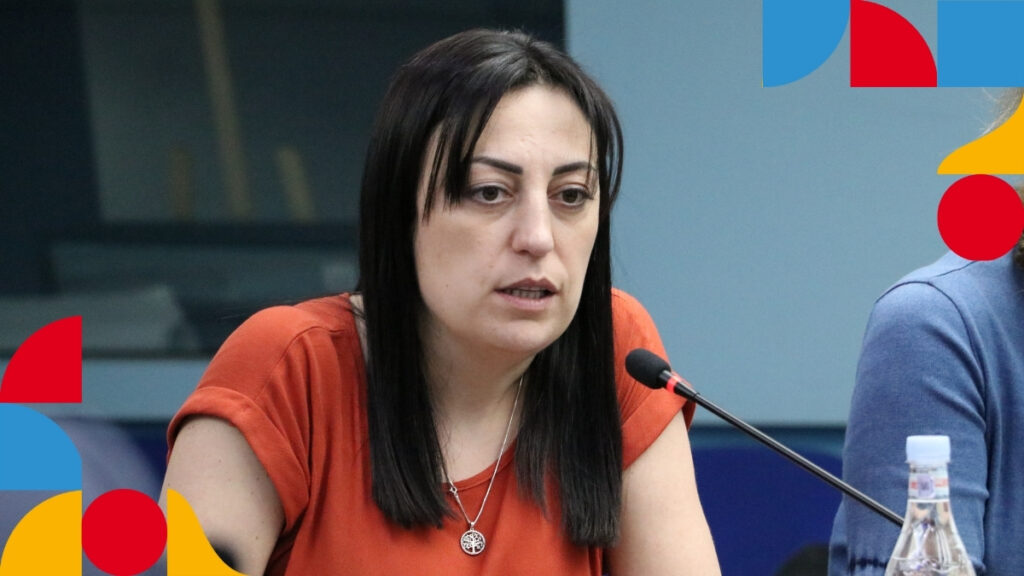
Is it important for you that people know what happened in Artsakh during the blockade?
Of course it is. Because it doesn’t matter where it happens – in Armenia or in another country. It happens first of all to people. People are dying simply because officials cannot reach an agreement. This is not about the will of the people, but about the will of the tyrants.
How did you keep in touch with the beneficiaries?
By telephone. It was difficult because from time to time there was no phone or internet connection. So our first question was: “Is it safe for you to talk now?” We also sent medicine during the war. It was total heroism, but we succeeded.
Unfortunately, we had cases where those to whom we sent medicine still did not take it. Simply because they did not believe they would survive. That is how they explained the reason. That is the most terrible thing when you have medicine but no hope of salvation.
Don’t you think the international community reacted too late to this tragedy? It could have been better?
We had a lot of questions about how this tragedy was covered in the world. In Artsakh, people were starving, freezing and literally dying, and the world just watched this tragedy. I would like to express my personal opinion: before this tragedy, I believed that there was justice in the world. But now I doubt it. In fact, we are very lonely, and we have to solve our own problems. And the worst thing is that I don’t know how to change it.
How is the mood in Armenia now? How has this blockade affected the work of your organization?
Of course, the situation is complicated. People really want to go back to Artsakh, but they do not want to go back to Artsakh as it is now. It’s not safe there, and that’s the main thing. I hardly read news sites or social networking groups. At some point, I realized that I couldn’t cope with it. We are now in a post-conflict period in the country.
People don’t understand what will happen tomorrow, how we will live, if there will be war again and if there will be peace. Personally, I try to live for today, do what I can and not overthink. We also agreed with the team to work and do what depends on us. That’s all. We have enough work, believe me.
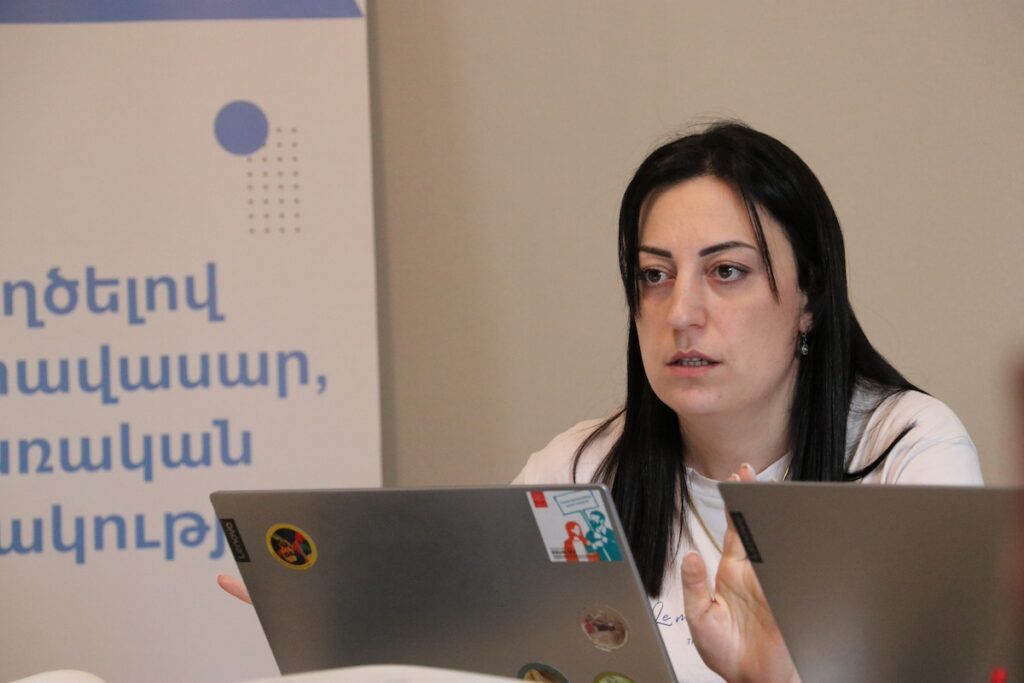
You are going to the International AIDS Conference AIDS 2024 in a few days. Have you decided why you are going? What do you want to achieve?
I will be giving several small presentations on violence against women in military conflicts as I am traveling as the country representative of the Eurasian Women’s AIDS Network. But to be honest, I don’t expect anything from this conference.
Just a few days ago, one of our counselors, who has been helping people living with HIV for 12 years, was denied an surgery just because she is living with HIV. Tell me, why do we need these conferences and similar meetings when this is happening? Where’s the justice? When I found out about this situation, I was furious, I sat on the phone most of the day trying to resolve the situation. Can you imagine the doctor saying right to her face: “I am a doctor, and I alone decide who to treat and who not to treat.”
What are you going to do with all this?
We have already made a post on social networks, we have already sent many official letters, including to the Medical Ethics Commission. I’m not sure that anything will change that we should try. So to come back to your question about the conference – I hope something will change after the conference. I do not want it to be in vain.
You know, I remember my first conference in Vienna in 2010, I was so inspired! But unfortunately, that enthusiasm fades over the years. I want to see more concrete actions and decisions. And change.
Text: Elena Derjanschi
Photo: Personal archive of the respondent
On behalf of the VirusOFF regional platform, we would like to express our deep concern about the situation described by Zhenya Mailyan.
People living with HIV have the right to equal and respectful treatment by medical personnel, no matter what problem they present and no matter what country they are in.
We hope that the Ministry of Health of Armenia and the Medical Ethics Commission will pay attention to this case and take all necessary measures to solve it. Because human life is of the highest good and value. And no one has the right to dispose of it except the person himself.
Daily Digest prepared by the International AIDS Society. Translated to Ukrainian and Russian by “VirusOFF”
Learn more about Eastern Europe and Central Asia at AIDS 2024: aids2024.virusoff.info – or on our main web page: VirusOFF.info
Follow us on social media to keep up with important updates:
Instagram – Virus off
Facebook – Virus Off

